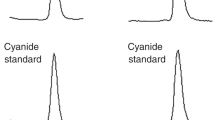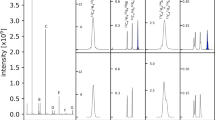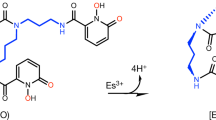Abstract
CHEMICAL EXAMINATION.—Native platinum was long ago the subject of investigation and the search for elements not yet discovered. Kern, in the year 1877 (Chem. News, 36, 1877, and 37, 1878), A. Guyar (Chem. News, 40, 59, 1879), Kurtz (Trans. Amer. Inst. Min. Eng., 33, 347, 1903), A. French (Chem. News, 104, 283, 1911) and many others claimed to have found new elements in native platinum. These ‘discoveries’ however, have not been confirmed. In 1925 W. Noddak, I. Tacke and O. Berg (Die Naturwissenschaften, No. 26, pp. 167–174, 1925) published a paper stating that they found in native platinum from the Gorablogodatski region, Ural, an element of atomic number 7.5. The quantity of the discovered substance was, however, so small (about 1 mgm.) that it was not possible to carry out conclusive experiments.
This is a preview of subscription content, access via your institution
Access options
Subscribe to this journal
Receive 51 print issues and online access
$199.00 per year
only $3.90 per issue
Buy this article
- Purchase on Springer Link
- Instant access to full article PDF
Prices may be subject to local taxes which are calculated during checkout
Similar content being viewed by others
Author information
Authors and Affiliations
Rights and permissions
About this article
Cite this article
ZVJAGINSTSEV, O. Dwi-Manganese in Native Platinum. Nature 118, 262–263 (1926). https://doi.org/10.1038/118262b0
Issue Date:
DOI: https://doi.org/10.1038/118262b0
Comments
By submitting a comment you agree to abide by our Terms and Community Guidelines. If you find something abusive or that does not comply with our terms or guidelines please flag it as inappropriate.



